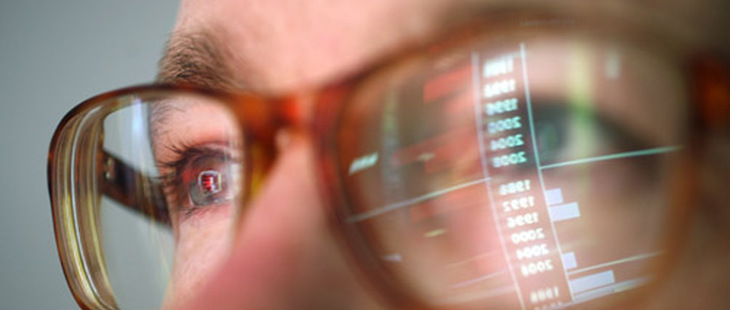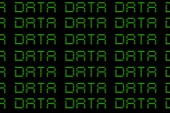

Everyone has numbers they’re a bit scared of — some dreaded figure that signifies old age or mounting debt — but for me, the one that truly inspires terror is the total number of read items in Google Reader. I can barely believe it but that figure now sits at 300,000. Maybe more disturbingly, for the past year, that figure has stayed constant at 300,000+. It seems they’ve stopped counting. Call me crazy, but if Google can’t keep track of how much I read online, I might have a problem.
Yet as much as that terrifying number may explain a great deal — like, say, why I haven’t finished my dissertation or that I haven’t had a date in months — in a way, I’ve also just been doing what many of us have been told since childhood: read as much as you can. From morning until night, I spend much of my day online reading the think-pieces, blogs and news that smart people are talking about, all because I’ve been groomed to think that the more you read, the more informed, educated, intelligent, aware and just generally awesome you are.
But it’s becoming increasingly clear that my “read everything” strategy is no longer working. It’s not just the obvious reason though — that there’s far too much stuff online for any one person — it’s that there’s too much good stuff. Not only have I collected around 500 websites in Google Reader, there’s Twitter too, where I’m bombarded with links all day. Then there are friends and family who, apparently convinced I have lots of free time, email me even more, whether lectures from philosophers or links to South Asian singles events (thanks Mom!). I just want to feel like I know what’s going on in the world, but instead, I feel like I’m drowning.
At the same time, spending all this time in front of a computer has taught me something else: that some people not only succeed at staying on top of this flood of information, they seem to be mastering it. I watch these people populate my computer screen with a not-so-secret jealousy. They not only seem to have a preternatural gift for finding the best stuff, they seem to be able to do smart things with it too, finding connections and insight that seem genuinely new. For years, I couldn’t figure out how they did it. And I wanted in.
So I sought out these “masters of information,” to discover their secrets for managing our new relationship to knowledge. But if I believed that the key to dealing with the flood was to emulate a distracted, hyperactive teen, talking to Joanne McNeil quickly deflated that idea. McNeil is the brains behind the blog Tomorrow Museum, where she writes about art, identity and online culture in a complex yet uncluttered manner. Even over a webcam chat, McNeil exudes calm and focus, speaking precisely and deliberately from her Brooklyn apartment, her hands wrapped around a mug of tea.
How does McNeil manage to stay so focused amidst the chaos of the web? “The main trick, the one I’m surprised more people don’t use, is Google Reader Search.” Instead of returning results from anywhere online, Google Reader Search provides results only from the sites one has subscribed to. That’s the first lesson. By narrowing one’s window on the web, you hone in on your own handpicked selection of the very best and brightest.
“We’re moving on from the stage that Google will find things for us,” McNeil says. “Maybe five years ago that was true, but now it’s overloaded with a lot of bad results that show up for what are perhaps not the best reasons.”
But the problem with that kind of narrowing is that it’s, well, narrow. Almost every day, I read stories about the cleverness of Apple’s marketing. But Marxist analyses of tech and commodity fetishism? Um, not so much. The trouble is, spend enough time in your own curated version of the world, and you start to become immune to – or just ignorant of – other perspectives.
In the past, we’d get around this problem by trusting the editors of various magazines and newspapers to bring us the news that mattered. But I’m already swamped by information. Surely there must be a better way to inform myself than simply adding to my already crowded reading list?
Mathew Ingram, a senior writer at technology blog GigaOM and former writer and editor at the Globe and Mail, thinks the answer is the social web. As much as Facebook and Twitter can be full of trite ephemera, Ingram believes that when used right, social networks act as a filter to cut though the noise and bring you what’s important. “I no longer feel the need to read everything the way I used to,” Ingram says. “I used to subscribe to Wired, Harper’s, New Yorker, The Atlantic, Scientific American, The Economist and so on. But now I operate on the principle that, if it’s important, the news will find me.”
Allowing what experts call your “social graph” to select and filter what one reads is, of course, no longer a new or radical idea. Just a few years of social media have taught us that when someone we know or respect posts a link, it has more value to us than if it comes at us without a recommendation. But an oft-made mistake is assuming that social filtering is a passive activity in which you subject yourself to the will of the crowd and simply wait for things to come across your path.
“I’m constantly constructing lists of people I follow on Twitter or people whose blogs I read or aggregators, “ Ingram says. “Provided you have a broad enough group of sources, then you’re likely to see just about everything that’s important.”
In other words, to be in the know is to know who those sources are. Build and then refine a network of the best and brightest and let them filter the web for you. But what allows a person to find and filter the most interesting stuff better than others? Ingram thinks it may have something to do with a certain personality type.
“They’re inherently curious, for one thing, and omnivorously so,” he says. “They’re very fast when it comes to spotting something that’s interesting or detecting why it’s interesting. And they’re either good at redistributing it or summarizing it.” As examples, Ingram offers columnist and analyst Dr. Paul Kedrosky and surprisingly, actor Alyssa Milano who, each in their own way, constantly find and share fascinating links.
Maybe well-informed people have always been that way. But if what motivated that curiosity in the past was an obsessive, fastidious urge to read everything, that mentality seems to have hit some kind of historical limit in the web. This is something blogger and entrepreneur Noah Brier, one of Fast Company’s “Most Creative People in Business” in 2010, has spent a lot of time thinking about. But his response to how he handles information overload might be a bit surprising.
“How I personally handle the glut, is that I just don’t worry about it, you know?” Brier says over the phone from New York. “My approach to consuming online content has been to not worry about missing stuff. I trust the network.”
“I think the most important thing [about information online] isn’t any specific piece of content or information, but the architecture and networks, the idea that connections are where the real value is,” Brier says. “It’s connecting two things that don’t necessarily go together or didn’t seem like they went together. That’s the lesson learned from the web.”
Standing at the shore of this overwhelming sea, instead of trying to swallow it all in, the new masters of information skim across it, picking out things from all over, and diving in deep only when necessary. Maybe more importantly, the true masters aren’t the ones who simply accumulate knowledge; they’re those that reconfigure it into something new.
So after talking to these masters, what changes did I make? Just one, actually: I turned off the option in Google Reader that displays the number of new articles waiting for you. Instead of a terrifying figure of “1000+ Unread Items” greeting me every morning, there’s just a never-ending stream of good stuff that I know I’ll never really finish. I read the things I read, and I miss the things I miss. It’s a tiny thing, really. But now, instead of holding my hands up to the tide in defiance, I see that the only way to deal with this infinitude of stuff is to let go, open my arms, and embrace the maddening flood.













